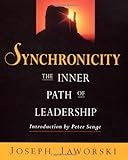As the year seems to be slipping away I thought it was time to look at the fourth area of leadership focus: Getting Things Done. I hope you enjoy this article on ‘Doing the Important Stuff’.
And remember, the Leadership Coaching Club is coming soon. If you are at all interested in joining after it is open to the public, make sure you register at http://leadershipcoachingclub.com now, so you will be eligible for the very special offers when it is first launched. It will be worth your while!
Kind regards, Kerrie
PS. It’s my birthday later this month so if you read right to the end of this issue of Leading Well, YOU will get a present! 🙂
———–
Doing the Important Stuff
In “First Things First”, the follow-up to Steven Covey’s best-selling self-improvement and motivation book “The 7 Habits of Highly Effective People”, he illustrates a highly effective system of time management that can benefit any leader or manager. Covey’s Quadrant method of time management has been adopted throughout the business world: in team building, project management, business meetings, leadership training and seminars to ensure you focus on doing the important stuff.
What Covey has named his Quadrants system is based on the theory that most of us are driven by a consuming sense of urgency. He instructs us to divide all our priorities into the following four quadrants:
Quadrant 1: Important and Urgent – Items in this category are integral to your success and require your immediate attention. They include: situations such as crises, emergencies, appointments, projects that have deadlines, and other pressing problems.
Quadrant 2: Important but Not Urgent – Items in this category are integral to your success but don’t require your immediate attention right now. They include: leadership activities like planning and preparing, preventing future problems, coaching and mentoring staff, building and developing relationships with others, considering new possibilities and opportunities, and balancing activities such as spending time with loved ones, or having fun and creative pursuits.
Quadrant 3: Not Important but Urgent – Items in this category are not integral to your life, but they do demand your immediate attention. They include things that appear pressing on the surface (such as answering an insistent ringing phone or email), but probably don’t have any drastic consequences or repercussions for your success, or that may be able to be done by others or in a different way (someone could take a phone message for example).
Quadrant 4: Not Important and Not Urgent – Items in this category are not integral to your success and don’t need to happen at any particular time (or sometimes at all, for that matter), yet doing them can consume your time and energy. They include: routines, distractions and diversions, time-wasters, and other things you can generally do well without, although sometimes they include things we just like doing that aren’t necessary or important.
What Covey says next about these Quadrants may surprise you.
He warns that the common tendency is for people to get wrapped up in Quadrant 1 & 3 tasks because of their sense of urgency. This typically happens at the expense of the much more important Quadrant 2, which contains many life-enriching and important tasks.
The focus on tasks in Quadrants 1 and 3 is bolstered by the influence of other people’s demands and forces outside yourself, including the impetus of time. Accomplishing urgent tasks in Quadrants 1 & 3 gives us a comforting sense of progress. At least we have achieved something (even if it wasn’t particularly important).
Tasks in Quadrant 4 are what we do to anesthetize ourselves to the stressful effects of an imbalanced concentration of our energy on urgent matters. We often hide in Quadrant 4 tasks, and use them to procrastinate about doing something else, like the more important (and sometimes more difficult) Quadrant 2 tasks.
The paradox is that by spending more time deliberately doing Quadrant 2 tasks, we can avoid many of the crises that fall into the important and urgent tasks of Quadrant 1 and delegate many of the Quadrant 3 and 4 tasks that still need to be done. This frees our time up to focus even more on the leadership tasks in Quadrant 2.
Quadrant 2 is where our true and lasting happiness and our most productive effectiveness resides.
The sorts of tasks that fall into Quadrant 2 are often the ones that we are most likely to procrastinate about or just feel we don’t have time for. But they can be the most important in the longer-term to get your creative juices flowing and achieve significant success.
In addition to the possibilities listed above, Quadrant 2 tasks also include: reading and expanding your mind, developing new skills and abilities, getting physical exercise, engaging in recreation and leisurely activities, devising and implementing systems, preventative activities, and envisioning and shaping your future.
Giving more attention to Quadrant 2 activities will make us more readily able to tackle Quadrant 1 and 3 tasks with ease and efficiency.
Where are you spending your time? Stop for a moment and think about whether you have got the balance right (a Quadrant 2 task) or whether you are letting urgency rule your life.
See QUOTES on ‘Doing the Important Stuff’ below.
———–
If you ever procrastinate when you should be focussed on ‘Doing the Important Stuff’ you need to read ‘101 Tips for Avoiding Procrastination’. In this 60 page guide you’ll learn all the tricks, methods, and strategies for beating your procrastination habit.
Order now and receive these FREE bonuses:
* Time Management and
* The 3 Most Powerful Ways to Get Yourself to Achieve ANYTHING Despite Pressure, Deadlines and Procrastination
PLUS: – to celebrate my birthday enter this Secret Code: BIRTHDAY-SPECIAL
in Step 2 when you order to save $9 off the cost of this product. Normally ‘101 Tips for Avoiding Procrastination’ is only $17 but for the next few days you can use this Secret Code to pay only $8! (plus GST if you are based in Australia)
That’s more than 50% off the full purchase price and a fantastic bargain! For less than you might pay for lunch you could be well on your way to kicking the procrastination habit and reaping the success you deserve.
More details at:
http://HowLeadersGetThingsDone.com/avoid-procrastination.html
But ignore the price on that page because you are getting a special price. When you get to Step 2 of the order process just enter your Secret Code: BIRTHDAY-SPECIAL and the price will be automatically reduced especially for you.
This Secret Code is only valid up until my birthday on November 25th, after which the regular price will apply. So don’t procrastinate! Order now and start reaping the rewards today.
———–
TWO QUOTES OF NOTE:
“I’ve been on a calendar, but never on time.”
Marilyn Monroe
“This time, like all times, is a very good one, if we know what to do with it.”
Ralph Waldo Emerson
———–
BOOKS WORTH READING –
“First Things First”
by Steven Covey
“The 7 Habits of Highly Effective People”
by Stephen R. Covey


